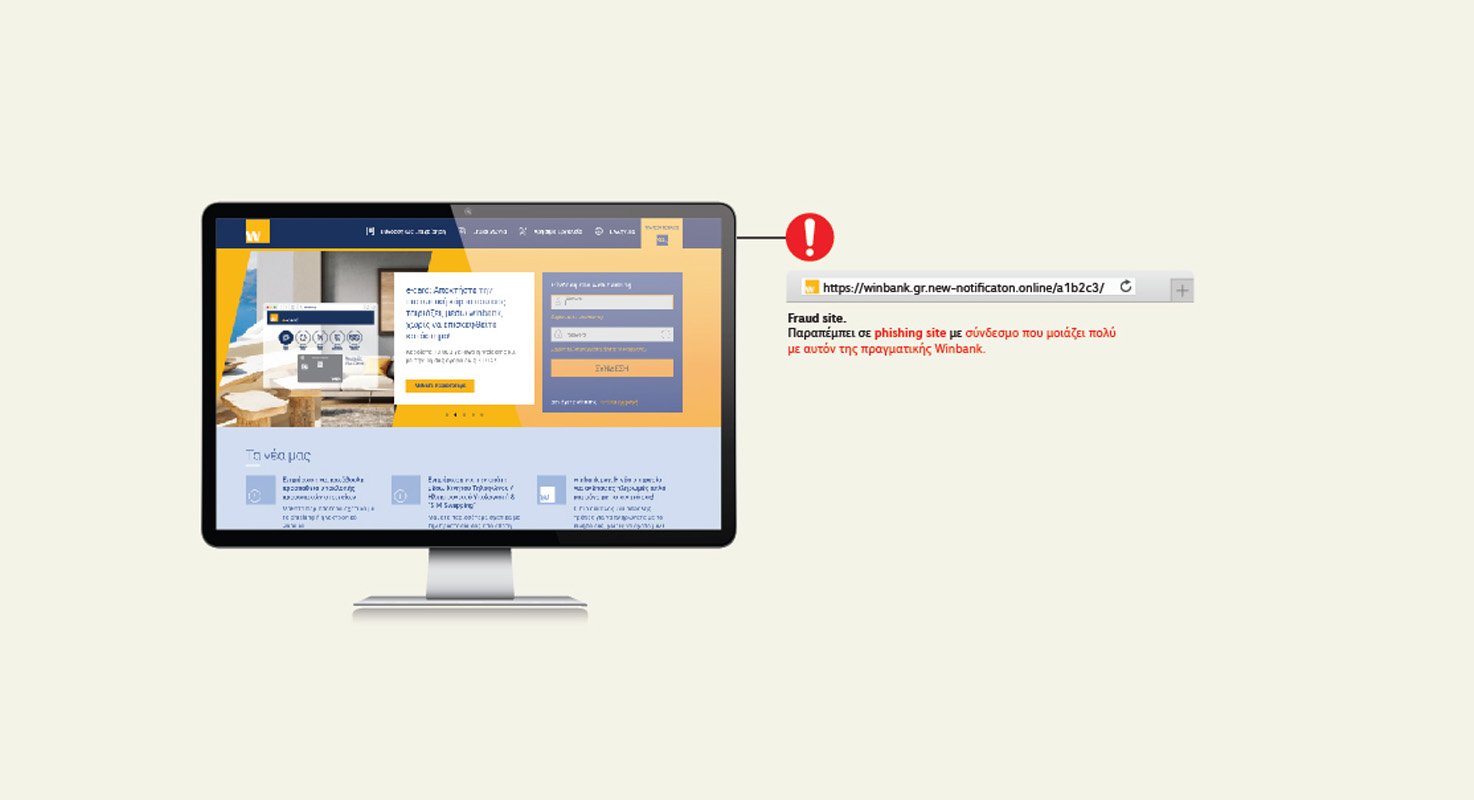Piraeus Bank published a warning on its blog with the aim of protecting its customers (and more). Below is the publication and we hope more will follow. The Greek public needs basic training in its use Internet and transaction security.
Piraeus Bank he says:
With the incidents scamto multiply, awareness of security issues is essential.
One of the topics presented in the last period is Phishing. The practice of Phishing (electronic data fishing) uses emails or sms as a means to intercept the person's personal data. These messages contain misleading content and their senders impersonate a legitimate organization/company/bank. They aim to extract confidential personal and financial data such as online banking usernames, passwords, debit/credit card details, etc. This data can then be used to make unauthorized financial transactions resulting in financial loss. The majority of Phishing messages claim either a problem with the account your, whether it requires your confirmation to perform a transaction, (which has not received an official order from you), or a service upgrade action, or confirmation of personal data.

As for how your information is intercepted, it is common practice to intercept it via email or sms sent asking you to visit the by clicking here of the Organization, by selecting a link included in the text (as shown in the image above). In the event that you choose to visit the link, you will notice that this page simulates or completely copies familiar electronic environments, such as Piraeus Bank's online banking.
However, in no case is the "fake" environment an official page of the Organization you know. For your safety, it is recommended that you do not select the link and state your personal details and codes, as the experts will immediately proceed with transactions, causing you financial loss.

In case you receive a suspicious email / sms, it is recommended that you do not enter the link that prompts you. Then for your safety you should contact the Organization directly (in this case Piraeus Bank). In case the sender is Piraeus Bank, it is recommended that you call the 24-hour telephone service stating the incident. After the statement of the incident and following the instructions of an authorized representative, you should delete the email or sms that you have received, without forwarding it to anyone other than the competent Service of Piraeus Bank, if requested.
At this point, let us remind you that Piraeus Bank will never ask you in any way for the passwords to electronic banking services (winbank), or data and card codes, but will not proceed with a process of updating-verifying personal data, which excludes any possibility that the email or sms you received comes from Piraeus Bank.





